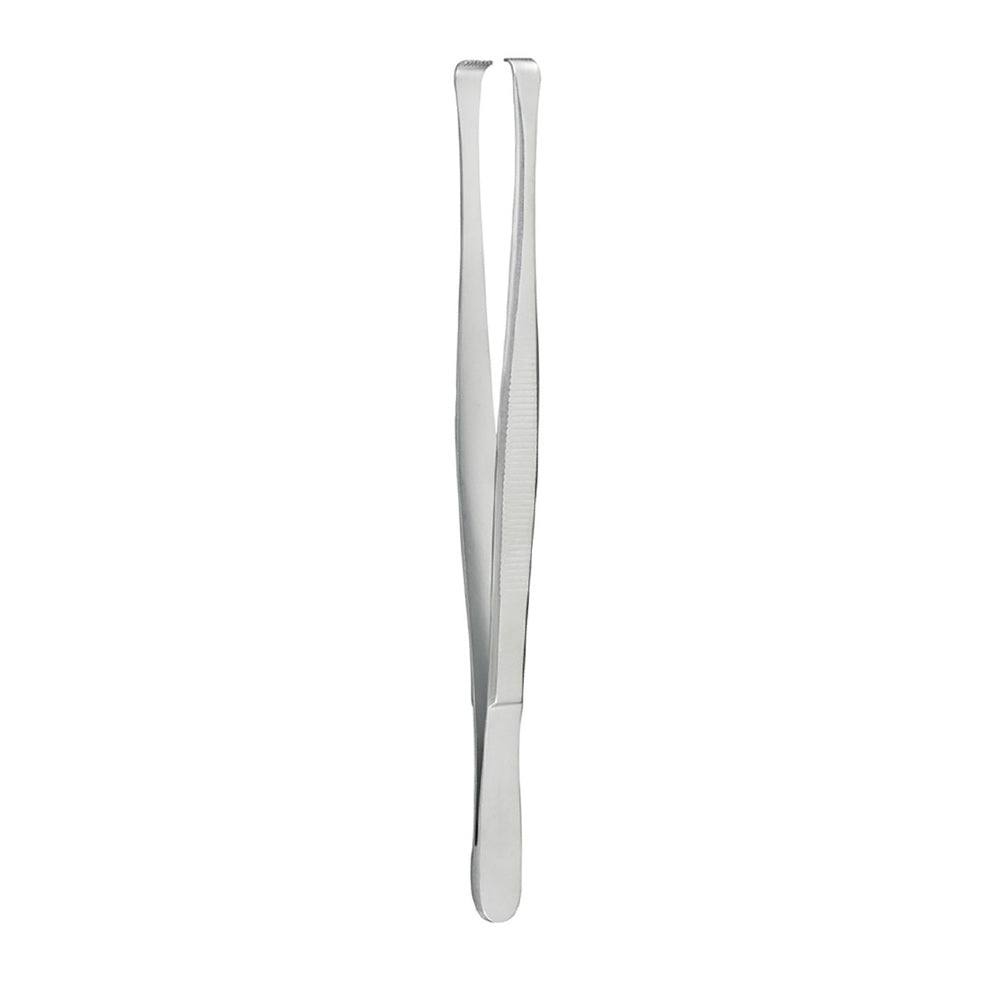


Martin Tissue Forceps: A Reliable Tool for Precision Tissue Handling
In the world of surgical procedures, handling tissues with gentle and precise care is essential. One instrument for surgery that stands out due to its efficacy for delicate procedures is the Martin Tissue Forceps. These forceps are used extensively for both minor and major operations due to their unique design that allows for safe, non-traumatic grasping of tissue. Popular for their versatility, Martin forceps are used extensively for general surgeries, Gynecology, and ENT procedures, as well as in veterinary practices.
This article examines the primary advantages, features, uses, and maintenance guidelines for Martin Tissue Forceps, highlighting their vital role in enhancing surgical efficiency and improving patient outcomes.
What Are Martin Tissue Forceps?
Martin Tissue Forceps are non-locking surgical instruments made to hold and manipulate or stabilize tender tissues throughout medical or surgical procedures. They are typically used to secure tissues that require temporary holding when being cut or sutured. They can also be used to examine.
Key Features:
- Tips that are toothed or serrated for improved grip
- Jaws with tapered jaws that permit precise access
- Non-locking handle equipped with spring tension to enable manual control
- Typically, it is constructed of surgical stainless steel of the highest quality
- Available in different dimensions (commonly between 14-18cm)
Their design is a combination of strength and precision that allows surgeons to exert pressure in a controlled manner without harming delicate tissue.
Primary Uses of Martin Tissue Forceps
Martin forceps are utilized in various medical fields due to their universal design and reliable performance.
1. General Surgery
- Utilized to grip, stabilize and manipulate tissue like skin, fascia, and muscles
- It is commonly used for suturing and closure of wounds
2. Gynecology and Obstetrics
- It is useful in processes such as curettage and dilation (D&C)
- It is used to secure the cervix or uterus while performing inspections or minor surgical procedures
3. ENT (Ear, Nose, Throat) Procedures
- The mucosal tissues are grazed within the nasal cavity or the throat.
- Useful to pack or dress removal in small areas
4. Plastic and Reconstructive Surgery
- It provides a secure grip without crushing tissue, which is vital in reconstructive and cosmetic work.
5. Veterinary Surgery
- It is ideal for securing animal tissues for orthopedic or soft tissue procedures.
Benefits of Using Martin Tissue Forceps
1. Strong, Secure Grip
The serrations' fine lines or teeth provide a solid grip on tissues, reducing the chance of slipping during the procedure.
2. Atraumatic Design
While they are capable of gripping with firmness, Martin forceps are designed to reduce the risk of trauma to the surrounding tissues, which helps speed up healing and minimize post-operative inflammation.
3. Versatility
It is suitable for use in a wide range of surgical disciplines and procedures, from minor wound treatment to more complex surgical procedures.
4. Comfortable Handling
The spring action enables precise control and requires minimal effort, which helps prevent hand fatigue during prolonged procedures.
5. Reusable and Sterilizable
Made from surgical-grade stainless steel, Martin forceps can be sterilized repeatedly without compromising their functionality or strength.
Martin Forceps vs. Other Tissue Forceps
FeatureMartin ForcepsAdson ForcepsDebakey Forceps
Tip Type Teeth or serrated Smooth or tacky A painful injured ribbed
Length Medium (14-18 cm) Small (12 cm) Medium to long
Use Case General surgical use Facial and skin Organs that are delicate and vascular
Grip Strength Firm Very robust (toothed) Gentle
Martin tissue forceps are an ideal balance between strength of grip and delicacy, which makes them the preferred choice for general surgical procedures.
Best Practices for Use
- Select the correct tip style. Tips with teeth are preferred for more rigid tissues. The serrated tips are best for soft tissues.
- Always take care to hold the tissue gently to avoid bruising or crushing.
- Ensure the tips are correctly aligned before use. Misaligned tips could harm tissue or lower the grip's effectiveness.
- Use in conjunction with other instruments, such as scalpels, needle holders, and scissors, for optimal performance during the procedure.
Care and Maintenance
Careful maintenance prolongs the useful life and lifespan of Martin forceps:
- Cleansing immediately: Wash under warm water immediately after use to remove blood and any debris.
- Ultrasonic Cleansing Helps reach areas with teeth or serrated surfaces to ensure thorough cleaning.
- Autoclaving: Sterilize using a standard autoclave machine, following sterile surgical procedures.
- Regular Inspection Examine for misalignment, rust, or dull points.
- Lubrication: Apply a medical-grade lubricant to joints to ensure an even spring action.
Be careful not to bend or drop the instrument, as this could cause jaws to move out of alignment and impact the performance.
Conclusion
Martin Tissue Forceps might appear straightforward at first, but they're one of the strongest and most efficient tools available to a surgeon. With their sturdy grasp, ergonomic shape and their versatility across a variety of disciplines, they help improve the accuracy of surgery and ensure patient safety. When used in a General Operating Room, special clinic, or even a veterinary clinic, the forceps have repeatedly proven that precision and reliability are crucial to achieving the best surgical results.
When choosing the appropriate tools, such as Martin Tissue Forceps, and maintaining them properly, medical professionals can continue to provide high-quality medical care with assurance and confidence.




 For Bulk Order Whatsapp US
For Bulk Order Whatsapp US